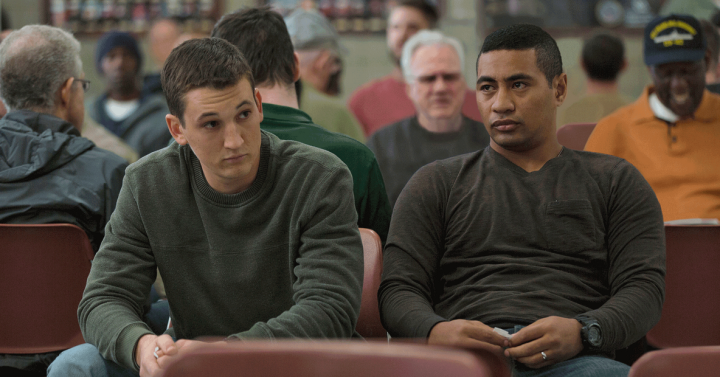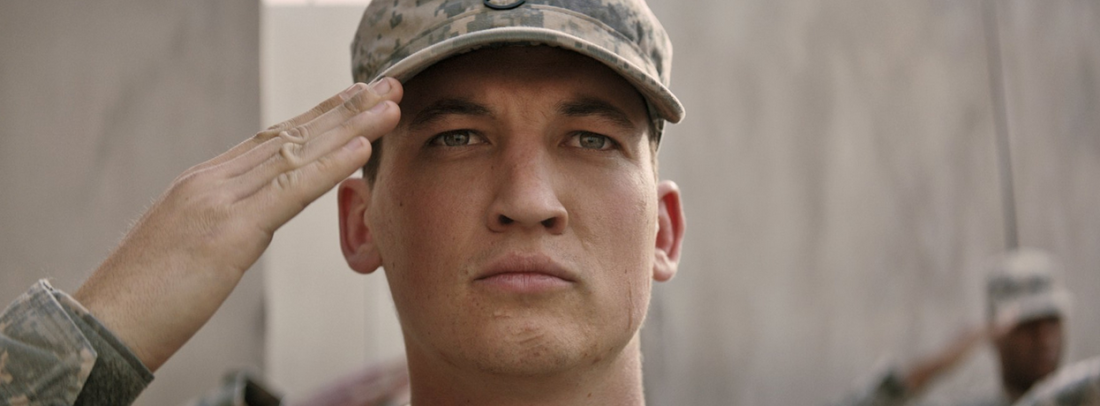Having lived with PTSD and related symptoms for most of my life, it’s entirely possible that I’m going to be way too easy on this film. Thank You For Your Service may know its target audience but is mercifully short on pandering patriotism and has more on its mind than might’ve been gleaned from trailers, posters and other pre-release materials. It’s a grounded, brutal and tragically human story, taking as its theme the stark hopelessness that can accompany mental illness and the often pitch black humor of those who live with heads full of demons.

That humor, by the way, is the biggest and best surprise of the film. Too often we get stories about soldiers and war that drown in self-seriousness, forgetting that at the heart of these films we are still watching human beings. But people are goofballs and soldiers are people. The strength of Thank You is that it never forgets this fact. By using the characters’ playfulness as shorthand for intimacy, it becomes the most universally relatable coming home story since, well, Coming Home. But, like Hal Ashby’s film, this is far from a comedy. It’s more that the rooting of the characters and the story in a recognizable world of hanging out and just trying to get through the day raises the film above what might’ve been the more standard – and tired – old boilerplate we’ve gotten a hundred times before.

We follow our three leads (Miles Teller, Joe Cole, Beulah Koale) as they navigate not only a return home from Iraq to a country that, at best, treats them with enthusiastic indifference (that title, while terrible, is more cynical than you might expect even given the context), but also a convoluted mental healthcare infrastructure on their way to receiving benefits and treatment. In other movies of this kind, the scene in which Teller’s war hero Schumann blasts the VA front desk for telling him his friend and fellow vet has to wait months to see a doctor – “These men did their job, now you do yours!” – would be met with cheers and applause from the crowded waiting room. But here there’s no dramatic score, no rousing speech, just a man yelling at a receptionist who’s heard it all before. Because this is just life now for these people. There aren’t any big declarations or sweeping orchestral overtures carrying anyone along. Just questionnaires of endlessly repeating variations on “I often have trouble concentrating” or “I often think I don’t deserve to live.” There’s nothing exhilarating about any of this.

Yeah, the film does eventually devolve into melodrama and ends on a bizarre note of awkwardness and flag-waving that it otherwise was smart enough to avoid. The tone and structure, though, are ambitious enough to set it apart. It’s cold but never heartless and is never afraid of how desolate the landscape of mental illness can be. And while it may not be the best film of its particular genre, it easily ranks among the most humane. Rated R for strong violent content, language throughout, some sexuality, drug material and brief nudity. Now playing at AMC Classic River Hills 10, Regal Biltmore Grande, Epic of Hendersonville.




Before you comment
The comments section is here to provide a platform for civil dialogue on the issues we face together as a local community. Xpress is committed to offering this platform for all voices, but when the tone of the discussion gets nasty or strays off topic, we believe many people choose not to participate. Xpress editors are determined to moderate comments to ensure a constructive interchange is maintained. All comments judged not to be in keeping with the spirit of civil discourse will be removed and repeat violators will be banned. See here for our terms of service. Thank you for being part of this effort to promote respectful discussion.